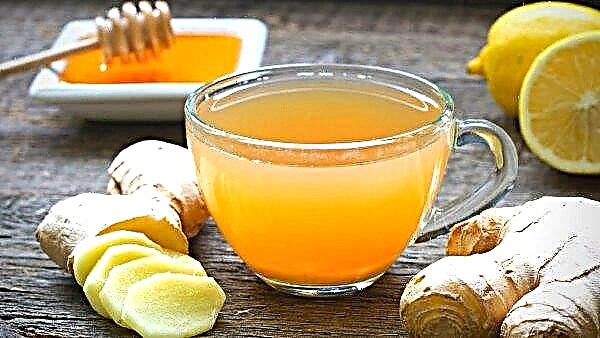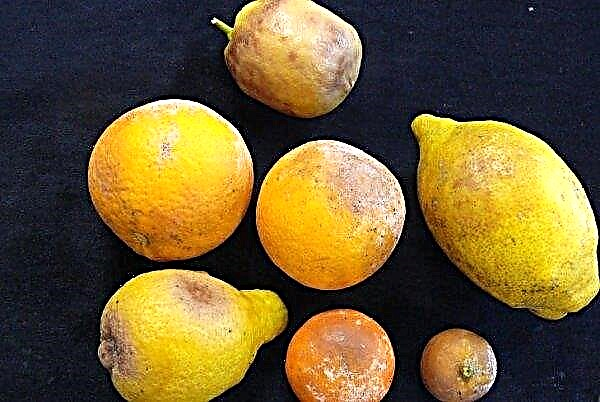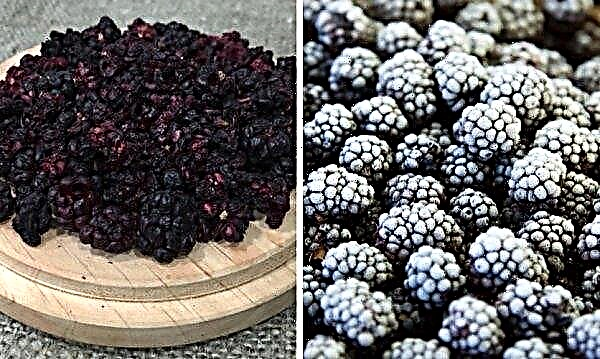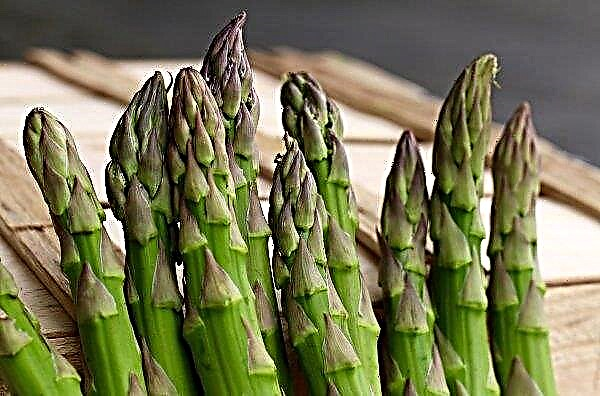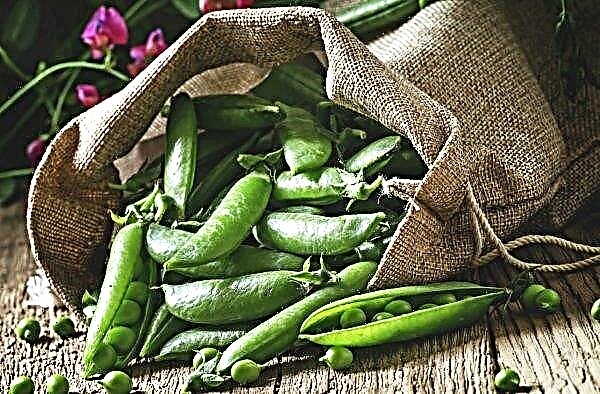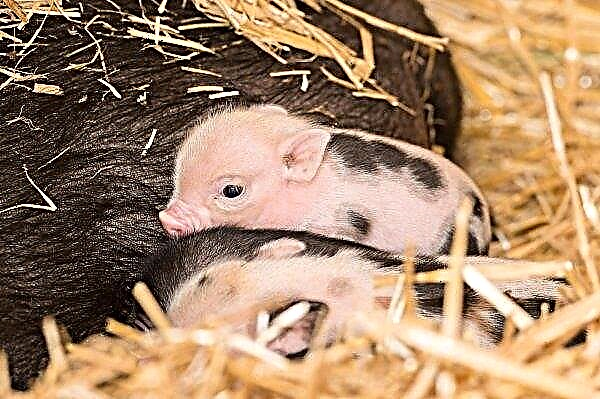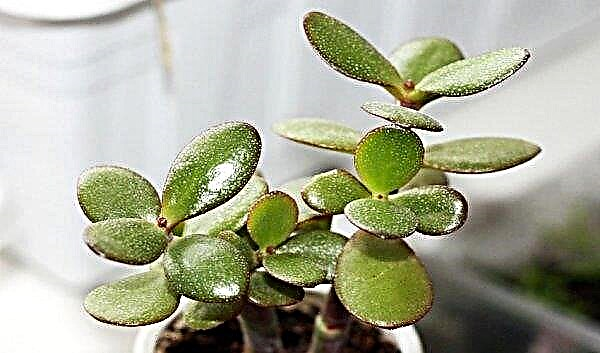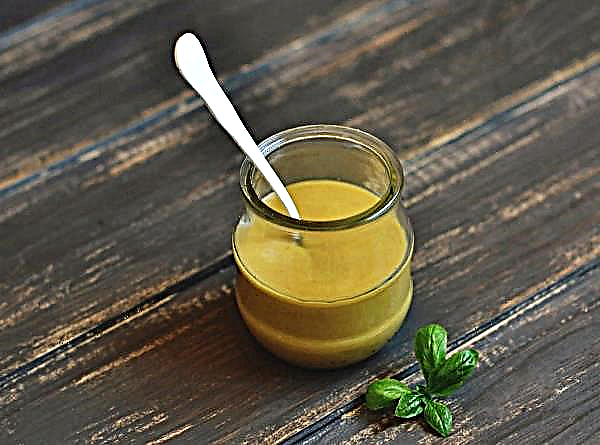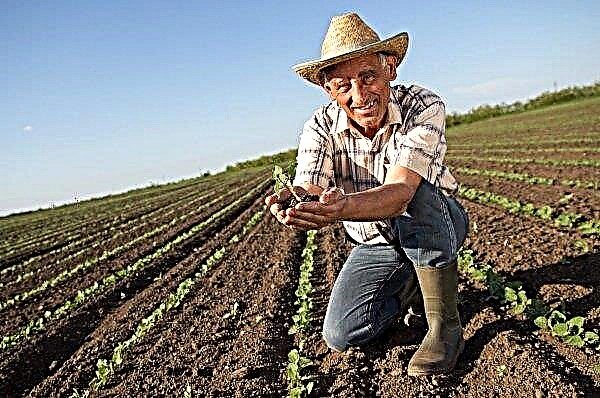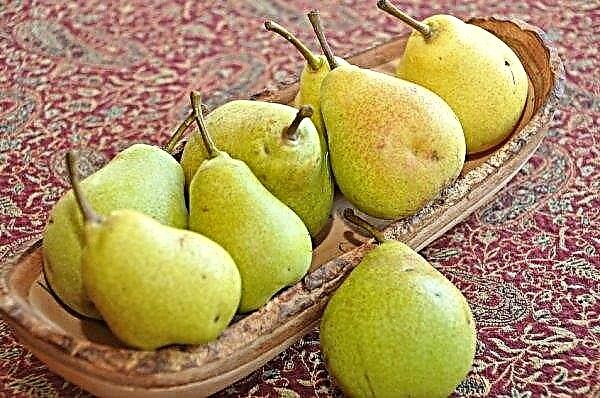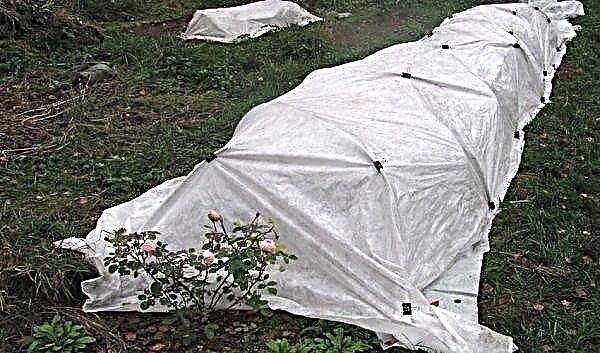On February 14, the 4th Grain of Russia Agricultural Forum was held in the Crowne Plaza Krasnodar - Center in Krasnodar, bringing together more than 200 participants in the grain market. The event confirmed its international status, the delegates represented 9 countries: Russia, Great Britain, Ukraine, France, Austria, Turkey, Bangladesh, Qatar and Finland. The Forum was organized by the Federal Agribusiness Magazine, and PhosAgro-Region became the general partner.
In recent years, Russia has powerfully made itself known in the world as one of the leading grain exporters. What are the current prospects for the grain market in Russia? What holds back export growth and how to increase deliveries abroad in order to fulfill the tasks set by the President of Russia? These and many other issues were discussed by delegates and speakers of the Forum "Grain of Russia - 2020".
With a welcoming speech addressed to the forum participants Maxim Yushechkin, Commercial Director of PhosAgro-Region Network: “Last year, the PhosAgro-Region regional companies supplied Russian farmers with over 3 million tons of mineral fertilizers. More than a third of this volume is highly effective NPK fertilizers, which have proven their effectiveness in the fields of dozens of regions of our country - from Kaliningrad to Petropavlovsk-Kamchatsky. Demand for complex fertilizers with calcium, effective on acidic soils, is growing. We also see an unprecedented increase in demand for liquid complex fertilizers - “liquid phosphorus”. Their relevance is obvious in conditions of water deficiency - one of the key factors in reducing the yield in recent years, especially in the southern regions. "
The 1st session was devoted to the problems and prospects of the grain market in Russia. The session was sponsored by A / O Suomen Villava. The session was moderated by Valery Kochergin, General Director of the Federal Agribusiness Journal.
Opened session Vladimir Petrichenko, ProZerno CEO, outlining the topic of his report as “Grain market conditions at the end of the season: interrupted flight ...”. He noted that the current situation on the world grain market is similar to February 2003 during the spread of SARS. The United States was a clear leader in the grain market in those years, and wheat prices plummeted amid economic fundamentals amid an SARS epidemic. Today, much resembles that situation, but there are already signals that the situation is starting to break, thanks to the active actions of the Chinese government.
Continued the session Pasi Järvilehto, Sales and Marketing Director in Russia, Finnish state-owned company A / O Suomen Villava. He noted that Russia has a good future in terms of grain strategy. Russian ports are developing rapidly, and new export routes will appear in the coming years. He spoke about the grain export scheme from Russia and Kazakhstan through Finland as a reliable northern alternative to Mediterranean transport. The distance from the Finnish ports to the Mediterranean exit to the Atlantic is more than 700 km shorter compared to the similar route from the port of Novorossiysk. The state-owned company A / O Suomen Villava provides a full range of logistics services for the export of grain through three transit ports in Finland, processing 2 million tons per year.
Olga Grab, Analyst, Agricultural Markets, Black Sea Region, Refinitiv Agency, spoke about the main trends in Russian grain exports in the 2019/20 season. The volume of actually exported grain from the Russian Federation in the first half of the grain season amounted to 26 million tons, and the projected volume for export, according to the USDA, is 45 million tons. These figures are most influenced by both internal processes (high purchase price) and global external causes (low price in the world market). The main trends in the grain market in the season 2019-20. include production growth; high quality grain; increase in grain supply prices and pressure on the margin of export market participants. At the same time, competition among exporters is growing and the number of Russian exporting companies in the market is decreasing. A decrease in exports in the first half of the season and record areas of winter sowing for crops in 2020 are noted. Speaking about global trends, analysts also note an increase in production, high grain quality and an increase in grain supply. There is pressure on the price of demand in the world market and a decrease in the competitiveness of Russian wheat. Russia has lost its share of the world market, and export volumes from the EU, Ukraine, and the USA have grown. Competition for sales markets is growing, while winter wheat crops are declining in producing countries - France, the USA, and Ukraine. Analysts at Refinitiv Agriculture forecast a fairly good wheat crop in the Russian Federation (excluding Crimea) in 2020 at 80.2 million tons.
Completed the session Elena Kultysheva, Sales Director, FOSS Russia, talked about the new SMART generation of digital grain analysis - Infratec ™. It is an accurate and reliable whole grain analyzer that uses near infrared transmission technology to measure several parameters: moisture, protein, oil content, starch and raw gluten. FOSS provides year-round technical monitoring of tools: it reviews the schedule for assessing the stability of devices and, in the event of a breakdown, immediately carries out repairs in remote access mode. The engineer sees the error code on the screen and leaves for the repair site with the necessary spare parts. Such analyzers are easily integrated into the Russian grain network - remote control of grain quality from a single center in real time. The main goal of the network is to coordinate all the devices included in it so that they give identical results, ensuring fair payment for grain. The network solution also helps prevent unauthorized corrections (tampering) and reduce the waiting time of machines during harvesting.
Session 2 was devoted to the problems of increasing yield and grain quality. The session was sponsored by Biotechagro, and moderated by Dmitry Dubinin, head of the agricultural support department of PhosAgro-Region.
Opened session Chief Agronomist of GK Kuban-Biotechagro Sergey Babenko, who spoke about the concept of obtaining high-quality grain using diagnostics and biological products. During the presentation, Sergey Babenko presented several effective drugs. The basis of the preparation “Geostim” is the Trichoderma viride fungus, associative bacteria Azomonas agilis, Azotobacter chrooccocum. The purpose of the drug is to suppress pathogenic microflora, decompose plant debris in the soil, which leads to improved soil fertility, the destruction of pathogenic microorganisms, and increased agricultural productivity. The basis of the BFTIM KS-2 preparation is the bacteria Bacillus amyloliquefaciens KS-2 isolated from the soil. Purpose of the drug: suppression of a wide range of pathogenic microflora. The drug Insetim is used to control larvae of 1-3 age of Lepidoptera and Coleoptera insect pests (Colorado potato beetle, American white butterfly, scoops, unpaired silkworm and others). The speaker presented the results of numerous production tests on various crops, confirming the economic efficiency of biological products.
Continued the session Dmitry Dubinin, Head of Agricultural Support Department, PhosAgro-Region, with a report on the topic "How to earn extra income on winter wheat?". There are always opportunities to increase profitability from each hectare of arable land, regardless of various organizational and economic factors, and this experience has caused increased interest among farmers. Each element of the technology (seeds, plant protection products or fertilizers) shows yield increases in a weather-favorable year. However, more attention is drawn to the application of these agronomic techniques in difficult weather and climatic years, during droughts, lack of precipitation during the period necessary for plants and other adverse events. Dmitry Dubinin in his presentation showed the competitive advantages of PhosAgro food systems, the use of liquid complex fertilizers (HCF) and solid granular complex fertilizers. This is evidenced by the highest water solubility of fertilizer brands, the best physical properties, the coefficient of use of the active substance of each element of mineral fertilizers. And as a result, the economic effectiveness of these fertilizers. According to the production experiments of PhosAgro-Region, the increase from the use of PhosAgro fertilizer systems amounted to 1.5 to 25 thousand rubles per hectare in a large line of field crops.
Director of the Novorossiysk branch of the FSBI Grain Quality Assessment Center Mikhail Khanov He spoke about the current situation in the sector of export of grain and its processed products. Over the past 30 years, Russia has increased the export potential of crops by 30 times to 53 million tons. Today, the Russian Federation takes the 4th place in the world in the export of grain crops with a market share of 12% and the 1st place in the world in wheat exports with a market share of 19%, retained leadership for the last three years. At the same time, exporters expand their markets. In the first 7 months of the 2019-20 season, deliveries of Russian wheat to Malta, Laos, Madagascar began; barley - Tunisia, China, Moldova; corn - Libya and Israel; soya - to Iran; sunflower meal - Egypt, Thailand, India; Flax - Israel and Algeria. The expansion of sales markets for Russian grain has occurred. Thus, the Saudi Arabian market was opened for Russian wheat exporters with a potential of up to 3.2 million tons. In 2019, the requirements for imported Russian wheat in terms of damage by a bug bug were relaxed in this country. China imports 3.2 million tons of Russian wheat and 83 million tons of soy. There was an expansion in the access of Russian grain products to the PRC market (soybean, rapeseed, sunflower meal and oilcake, soybean - without restrictions by region, wheat and barley - Amur, Kurgan, Novosibirsk, Omsk, Chelyabinsk regions, Altai and Krasnoyarsk regions).
The topic of crop quality was continued by Irina Burya, leading scientific consultant of the Krasnodar representative office of JSC Schelkovo Agrochem, presented ways of quality management in growing technology. According to experts from the United States and Europe, an increase in wheat yield in equal shares consists in the introduction of new varieties and improvement of cultivation technology. Farmers are able to influence the quality of products by balanced nutrition of plants (phosphorus at the beginning of the growing season, nitrogen in critical phases: tillering, stem growth, before heading) and timely protection against various diseases and pests. Special attention was paid in the presentation to control of harmful objects and factors for the selection of herbicides. Irina Burya spoke about the use of the new Pixel herbicide, MD; fungicides - Azorro, KS, Capella, ME, Triad, KKR focusing on the methodology for their selection. The speaker presented the innovative development “Schelkovo Agrochem” - microfertilizer “Ultramag Combi”. It was created on the basis of the achievements accumulated by the company in the production of colloidal and microemulsion formulations. Ultramag Combi uses the latest special adjuvants and excipients that improve the spreadability and retention of working solutions on the leaves, accelerate the penetration and absorption of nutrients.
The 3rd session was devoted to technological solutions for growing and storing grain. The session was sponsored by Metal Profile Company LLC, moderated by Oleg Alexandrov, Rostselmash project manager.
Opened session Andrey Morunkov, Director of Plant Production, PenzaMolInvest LLC (Damate Group of Companies) with the report "Use of new technologies in crop production." In 2018, Damate Group began the active introduction of precision farming and digital technologies. Along with the obvious advantages of modern technologies and elements of precision farming, Andrey Morunkov noted several disadvantages that impede their widespread use. These include the high cost of machinery, equipment and services for the use of unmanned aerial vehicles; the technical complexity of the equipment used and the need to use specialized programs, which creates certain difficulties in finding specialists who are able to master and use this equipment; lack of experience in using technologies that are rapidly changing and improving, which creates certain difficulties in an objective assessment of the effectiveness of their use.
Continued the session Oleg Alexandrov, head of the Rostselmash project, with a presentation on the topic “Digital technologies in modern crop production. Ecosystem of Autonomous Agriculture. ” At the beginning of the report, the speaker talked about the digital present of Russian agriculture, already implemented using the Rostselmash technique: the precise application of fertilizers, seeds, plant protection products; systems of auto-driving and optimization of equipment; accurate harvesting of crops and so on. In 2020, the company presents a number of new products to Russian farmers. These include the RSM Yield Mapping ™ yield mapping system and the RSM Notification ™ maintenance and critical operation notification system. Increase production efficiency RSM ID ™ - a system for identifying the operator, attachments and trailers, unloading materials on a friend or foe basis. The algorithm of the RSM Router ™ system will evaluate the characteristics of the field and machines, building the maximum effective route for the movement of equipment and marking the places for unloading grain or loading seeds and fertilizers.
Vitaly Shamaev, General Director of the analytical agency "Agrospeaker", noted the positive trends of the grain market. Futures scenarios show price stability for wheat, a slight increase in corn and oilseeds until the end of the season. The average purchase price index of the Russian crop GO_SVCON_INX (RUB) reached the storm of historic highs. Grain prices are eligible for growth, since they are 40-50% lower than inflation prices. But with a strong ruble they will be higher than export ones. The Russian crop price index at purchase prices GO-SVCON-SUM (RUB) updated historical highs. It reflects the growth of gross arable land. He noted that the capacity of the world market of grain, oilseeds, processed products is huge, and the share of Russian products is only 8%. The global market can pick up the entire increase in agricultural production. To underestimate production means undermining the foundations of the growth of the Russian agricultural economy. It is necessary to look for ways to increase competition in the global market. The reserve of competition in the world market lies in monetary policy, the cheapening of the transport system. Agriculture technologies reach their 100% potential.
Mikhail Mizin, official representative of the VDMA Agricultural Machinery Association in Russia, made a review of world practices, telling the forum participants about advanced technologies for modern agricultural machinery. World agricultural engineering continues to be one of the most innovative industries with a 5 percent investment in R&D. The share of foreign manufacturers' equipment on the Russian market currently amounts to approximately 50%, which corresponds to the leading world markets: Germany, Italy, France, and the USA. The agro-industrial complex of the Russian Federation shows a steady increase in productivity and an increase in diversification. At the same time, the availability of modern equipment and technologies lies at the heart of crop growth per hectare in crop production. But the rate of renewal of the fleet of equipment and investments in infrastructure are still relatively low.In turn, foreign brands are ready to localize production in Russia to become closer to the client, but this requires clear and enforceable rules. The Agritechnica exhibition held in Germany at the end of 2019 showed the following trends: crawler tracks were increasingly used in the production of powerful tractors, and in the production of low-power tractors, many manufacturers are paying more and more attention to battery traction. An important issue on the agenda remains the reduction of air emissions, as evidenced by the recently introduced Stage V standard in Europe. The exhibition also showed that most manufacturers are trying to guess the future needs of agriculture and create concepts for unmanned models, hybrid and electric cars, and also expand the scope of application of agrodrons.
Completed 3 session Vitaly Stavsky, Head of Sales, LLC Company Metal Profile, introduced new technologies in the construction of grain storage facilities. Today, Metal Profile is a leading manufacturer of sheet roofing and wall materials in Russia and the CIS. The group includes 18 factories and more than 60 sales offices in various regions of Russia, Belarus, Kazakhstan and Asia. Of interest to agricultural producers are high-quality AIRPANEL sandwich panels, which, due to higher thermal insulation, low base load, high sound insulation and non-hygroscopicity, can significantly save money in the construction of production and storage facilities for agriculture (granaries). Special attention was paid to the special protective coatings of the metal on a polyurethane basis, providing its better resistance to corrosion, such as PURMAN and Puretan. The service life of metal tiles and profiled sheets used in the construction of granaries and other agricultural facilities made of such metal is 2-3 times longer than the service life of metal with a conventional polyester coating. This can significantly reduce the operational cost per square meter of the structure, in terms of service life.
The emerging condensation problem on non-insulated metal roofs is successfully solved by the DRIPSTOP technology - a self-adhesive film made of polyester fibers applied to the inside of a metal tile and corrugated board. This is a cost-effective way to solve problems, because the maximum condensate absorption is 1l / m².
Natalya Krasheninnik, Director of Development of the Agrobiotech Direction of the Cluster of Biological and Medical Technologies of the Skolkovo Foundation told the delegates of the Forum about the agronomy opportunities of the Institute for Strategic Development, created by the Government of the Russian Federation. Innovation priorities of the direction are genetics and selection in crop production, animal husbandry, aquaculture and forestry; probiotics, vaccines, plant protection agents, fertilizers, feed components; digital technology; technologies for storage and processing of organic raw materials; industrial biotechnology; food technology; engineering solutions for agriculture. Today, the Skolkovo Foundation supports more than 110 participants in these areas with revenues of 1 billion rubles. and investment volume of 1 billion. Natalya Krasheninnik spoke in detail about the conditions and benefits of obtaining support for attracting venture financing, grant support, tax and customs benefits for Skolkovo residents. The selection developments of Skolkovo participants were presented, in particular, Taganrog and Bourbon durum wheat varieties from Agroliga TsSR LLC.
Dmitry Kovalev from the Transport and Logistics Directorate of UC RUSAL showed delegates the situation with the development of sea cargo transportation by sea in the Far East and the possibilities of combining import and export cargo flows using the example of Vanino port. RUSAL decided to implement a project to build its own specialized alumina terminal in the port of Vanino. The terminal capacity is 2.2 million tons / year, the deadweight of vessels is from 35 to 50 thousand. At the same time, about 50% of the berth's employment is not in demand, and a decision was made to choose a reciprocal export cargo flow. The following bulk cargoes are considered: fertilizers, grain and other cargoes. There are additional advantages for grain freight traffic: access to the markets of the Asia-Pacific region: (Japan, China, Indonesia and other countries); government support for grain exports through the Far East; construction of the first specialized grain terminal in the Far East with a significant cargo turnover - more than 2 million tons per year. To date, all permits have been obtained for the alumina terminal construction project. Designing decisions regarding grain transshipment can be carried out during construction work, since the grain part of the terminal does not affect hydraulic structures and most of the rear development of the terminal. The planned project implementation period is 2020 - 2023.
Artyom Belyaev, General Director of Belaya Dacha Farming LLC, presented to the assembled participants of the grain market the digital Grain Chain platform as a tool for optimizing the processes of concluding grain purchase / sale transactions and their transportation. The service provides for a transparent business for participants in the grain market and a digital footprint of their activities, convenience in the interaction between market participants, safe transactions, customer verification and assessment of counterparty reliability, the ability to authorize users through the public services portal (ESIA), monitoring prices and trading volumes, the opportunity independent search for partners by parameters, the availability of a tool for mass generation of applications. The Grain Chain service provides participants of the Russian grain market with access to information on demand and offers for products and transportation services in their and other regions on-line. Already today, the service has implemented the functionality of filing applications for transportation with different modes of transport; price negotiations in a chain transaction online (“bargain”); generation of standard agreements with auto-completion of details of transaction participants, as well as fixing feedback on transaction participants. In the near future the possibility of using EDS, EDI will be realized; "Electronic queue" for participants in transactions; Mobile applications for logistics companies and a secure transaction service.
He spoke about exchange trading and price risk management Alexander Bobylev, Senior Pricing Specialist, Department of Agriculture, EMEA S&P Global Platts (UK). He elaborated on the use of Platts indices for grain from the Black Sea region in physical contracts and for managing price risks. The index is a daily assessment of the physical market for a particular product, at a specific location with a specific shipment period. The accuracy of the assessment is ensured by a thorough and transparent methodology, an independent fundamental approach to data collection, the possession of experience and expertise in this physical market, as well as trust from market participants. The grain market participants were particularly interested in practical examples of the main ways of applying the Platts assessment of Black Sea wheat.
Session closed Igor Pavensky, Director of the Department of Strategic Marketing, Rusagrotrans, talked about current trends in the development of grain exports and rail transportation. He noted that in December 2019, export volumes increased compared to November, due to an increase in export prices, but in January 2020 fell again amid low market activity in the first half of the month due to the holidays. The resumption of export activity is forecasted in February-April, including due to an increase in the supply of corn and barley. A significant decrease in export prices may contribute to an increase in the supply of grain from agricultural producers at lower prices than before, in addition, part of the export sales for February-March were carried out at fairly high export prices, which were quoted in the second half of January 2020. The forecast for grain export in general for the 2019/20 season, excluding supplies to the EAEU countries - about 39.2 million tons (minus 3 million tons compared to the previous season). Export to the EAEU countries, including Kazakhstan, will amount to about 1.75 million tons (1.45 million tons), and legumes - about 0.8 million tons (1.1 million tons). Total exports - 42.1 million tons against 45.1 million tons (minus 3 million tons). Grain export in July-January of the 2019/20 season by rail is 13% lower than the level of the 2018/19 season - 8.97 million tons compared to 10.3 million tons. At the same time, the export rate is higher than it was before 2016/17 marketing year. The forecast for export by rail in the 2019/20 season is below the level of the 2018/19 season - 12.6 million tons against 13.5 million tons, which nevertheless will be the third result in the history of transportation after the last two seasons.
The forum ended with a drawing of memorable gifts and the presentation of diplomas to the partners of the event.
General Sponsor of the Grain of Russia 2020 Forum: PhosAgro-Region (PhosAgro Group);
Sponsors: FOSS and JSC "Shchelkovo Agrochem";
Session sponsors: BioTechAgro LLC, Suomen Villava A / O, Metal Profile Company LLC, UC RUSAL;
The wine sponsor Kuban-Vino company;
V Agricultural Forum "Grain of Russia - 2021" will be held in Krasnodar in February 2021. 3You can register today on the site http://events.agbz.ru/.

